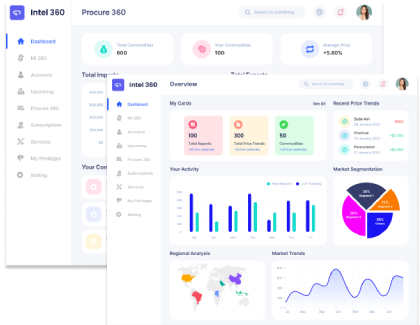Meningitis is one of the few medical emergencies that progressed rapidly and dangerously. Within hours, a seemingly benign fever can evolve into a cascade of neurological dysfunction, driven by inflammation of the meninges (the tri-layered membranes encasing the brain and spinal cord). It can result from bacterial, viral, fungal, or parasitic infections. While viral meningitis is most common, bacterial meningitis is the most severe, requiring urgent medical intervention due to its high risk of mortality and long-term neurological complications. In response to the growing global burden of this life-threatening condition, the World Health Organization (WHO) released its first-ever global guidelines on meningitis diagnosis, treatment, and care in April 2025. Aimed especially at supporting low- and middle-income countries, these guidelines focus on accelerating detection, enhancing treatment outcomes, and improving long-term care for survivors.
Global Trends in Meningitis: The Rising Burden
The global burden of meningitis remains significant, with approximately 2.3 million cases reported annually, according to the Meningitis Research Foundation. The World Health Organization highlights bacterial meningitis as particularly dangerous, with a case fatality rate of 1 in 6 and severe complications affecting 1 in 5 survivors. In the United States, 422 cases of bacterial meningitis were recorded in 2023, the highest since 2014, according to the Centers for Disease Control and Prevention. In England, the UK Health Security Agency documented 105 cases of invasive meningococcal disease in the first quarter of 2024, with group B accounting for 92.4% of cases. These statistics reflect the continued global health challenge posed by meningitis and the critical importance of vaccination and public health interventions.
These figures underscore that meningitis is far from eradicated. The statistics emphasize the urgency of coordinated global action in surveillance, vaccination along with clinical response and post-recovery care.
WHO Releases Guidelines as a Response to the Growing Crisis
In direct response to the rising global burden, the World Health Organization (WHO) released its first-ever global guidelines on meningitis diagnosis, treatment, and care in April 2025. This significant step aims to accelerate detection, improve treatment outcomes, and enhance long-term care for those affected. Despite advancements in vaccines and treatments, bacterial meningitis remains a major global health threat, with approximately 2.5 million cases reported in 2019, including 1.6 million bacterial cases leading to 240,000 deaths. The guidelines, particularly relevant for low- and middle-income countries, emphasize faster diagnosis, effective management, and improved care.
WHO Clinical Guidelines: A Framework for Diagnosis and Management of Acute Meningitis
The World Health Organization (WHO) has launched an ambitious initiative to defeat meningitis as a public health threat by 2030.
Diagnostic Protocols for Meningitis
The World Health Organization recommends a systematic, evidence-based approach for the diagnosis of acute meningitis. Diagnosis should begin with a lumbar puncture and cerebrospinal fluid (CSF) analysis, ideally before initiating antimicrobial therapy, unless contraindicated. Essential CSF investigations include Gram stain, white blood cell count, glucose and protein concentrations, and CSF-to-blood glucose ratio. Polymerase chain reaction (PCR) testing is strongly recommended for pathogen identification. Blood cultures, inflammatory markers (e.g., C-reactive protein, procalcitonin), and cranial imaging, where indicated, support diagnosis. Imaging is reserved for cases with neurological red flags, while treatment initiation should not be delayed by diagnostic procedures.
Treatment Guidelines: Prompt and Targeted Antimicrobial Therapy
Management of suspected meningitis requires prompt admission or urgent transfer of individuals with suspected acute meningitis to appropriate healthcare facilities. Empiric intravenous antimicrobial therapy should be initiated immediately, preferably with ceftriaxone or cefotaxime, with adjustments based on risk factors such as age, pregnancy, or regional resistance patterns. Treatment duration varies by pathogen and setting, with corticosteroids recommended in non-epidemic contexts. Adjunctive care includes management of intracranial pressure, seizure control, and prophylaxis for close contacts during meningococcal outbreaks. Therapy must be adapted upon pathogen identification to minimize resistance.
WHO Recommendations for Meningitis Management and Sequelae Care
The WHO emphasizes early detection and management of meningitis sequelae to prevent long-term disability. This includes comprehensive clinical assessments to identify issues such as hearing loss, cognitive impairment, or neurological deficits. Rehabilitation strategies, including assistive devices and environmental modifications, are crucial for improving the quality of life. Additionally, formal audiological screening is recommended either before discharge or within four weeks for those affected by hearing loss due to meningitis.
Mission to Defeat Meningitis by 2030: Implementation and Global Impact
The WHO’s global roadmap to defeat meningitis by 2030 represents a collaborative effort among governments, global health organizations, and civil society to eliminate meningitis as a public health threat. This initiative outlines three visionary goals: eliminating meningitis epidemics, reducing vaccine-preventable meningitis cases by 50% and deaths by 70%, and improving the quality of life for meningitis survivors. The roadmap's framework is built around five key pillars, including prevention and epidemic control, diagnosis and treatment, surveillance, support and care, and advocacy and engagement.
To achieve these goals, countries are encouraged to adopt comprehensive guidelines addressing diagnosis, treatment, and long-term care for meningitis. With a strong focus on enhancing healthcare infrastructure, particularly in low- and middle-income countries, the widespread adoption of these guidelines is critical. The long-term impact will be a reduction in mortality, disability, and the global burden of meningitis, ultimately contributing to a healthier, more resilient world.
Immunization Coverage and Its Role in Meningitis Prevention
Vaccination plays a pivotal role in the prevention and control of meningitis, significantly reducing disease incidence and associated mortality.
- According to the Centers for Disease Control and Prevention, 88.6% of adolescents in the United States have received at least one dose of the MenACWY vaccine, underscoring high coverage levels.
- The Meningitis Research Foundation reports that polysaccharide vaccines demonstrate 65%-83.7% effectiveness, while conjugate vaccines offer 66%-100% protection.
Enhancing vaccine access remains essential for global meningitis elimination efforts.
Recent Advancements in Meningococcal Disease Prevention
- In April 2024, Nigeria became the first country to introduce Men5CV, a groundbreaking WHO-recommended 5-in-1 meningitis vaccine offering protection against serogroups A, C, W, Y, and X. This development follows a severe outbreak affecting over 1,700 individuals across seven states.
- In October 2023, the U.S. Food and Drug Administration approved Pfizer’s Penbraya, the first pentavalent meningococcal vaccine for adolescents, providing broader protection and potentially simplifying immunization schedules.
Such advancements represent crucial progress toward broader, more efficient immunization strategies.
Promising Vaccine Trials Advancing Meningitis Prevention
To expand the meningitis vaccine arsenal, several clinical trials are underway, targeting both infants and adolescents. GlaxoSmithKline's Phase 4 trial is evaluating the safety and immunogenicity of the rMenB+OMV NZ vaccine in infants in South Korea. In parallel, CanSino Biologics is conducting a Phase 3 randomized, blinded trial, assessing the ACYW135 conjugate vaccine’s efficacy and immune persistence. These studies aim to strengthen age-specific protection against multiple meningococcal serogroups.



















Share